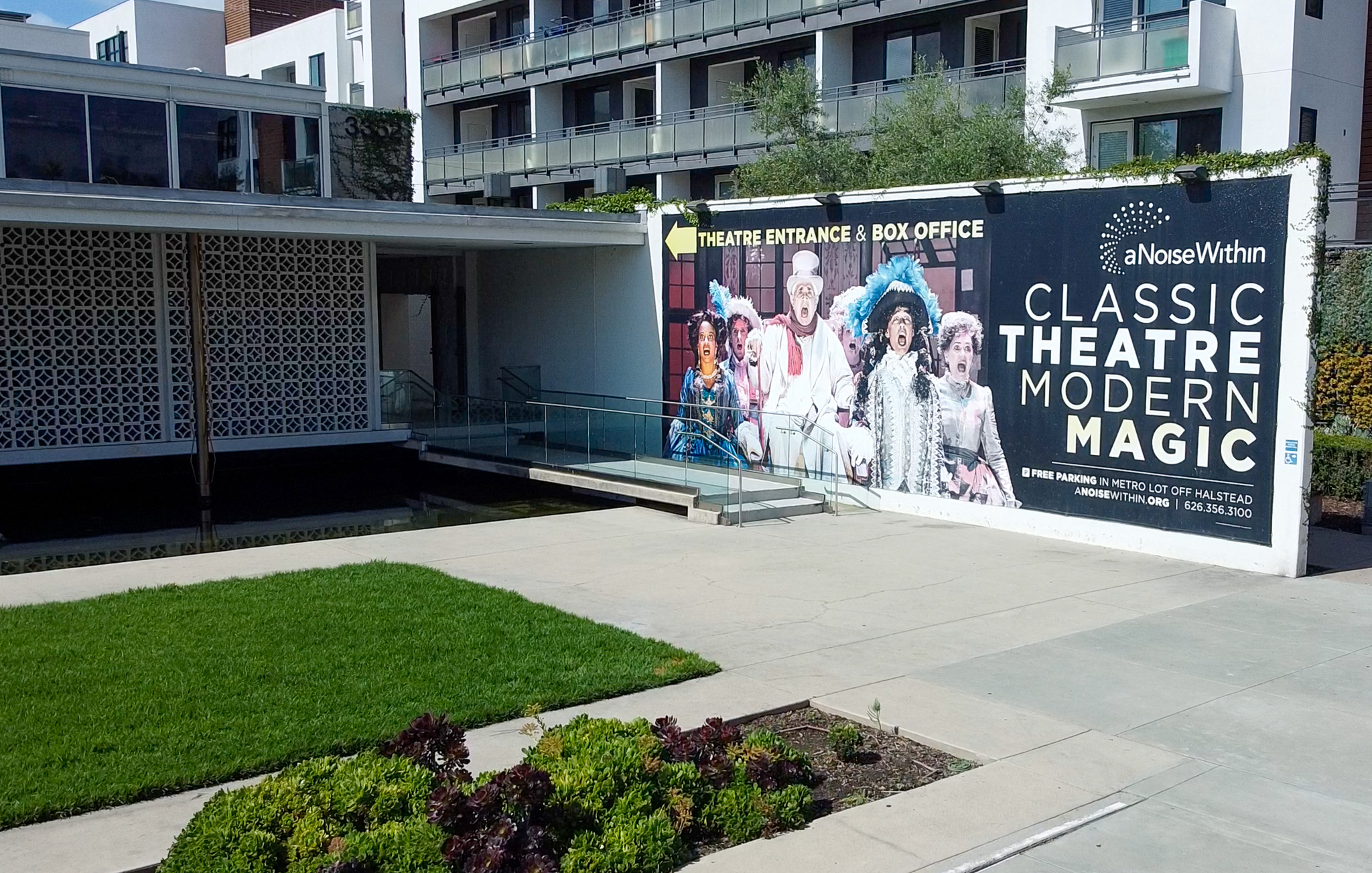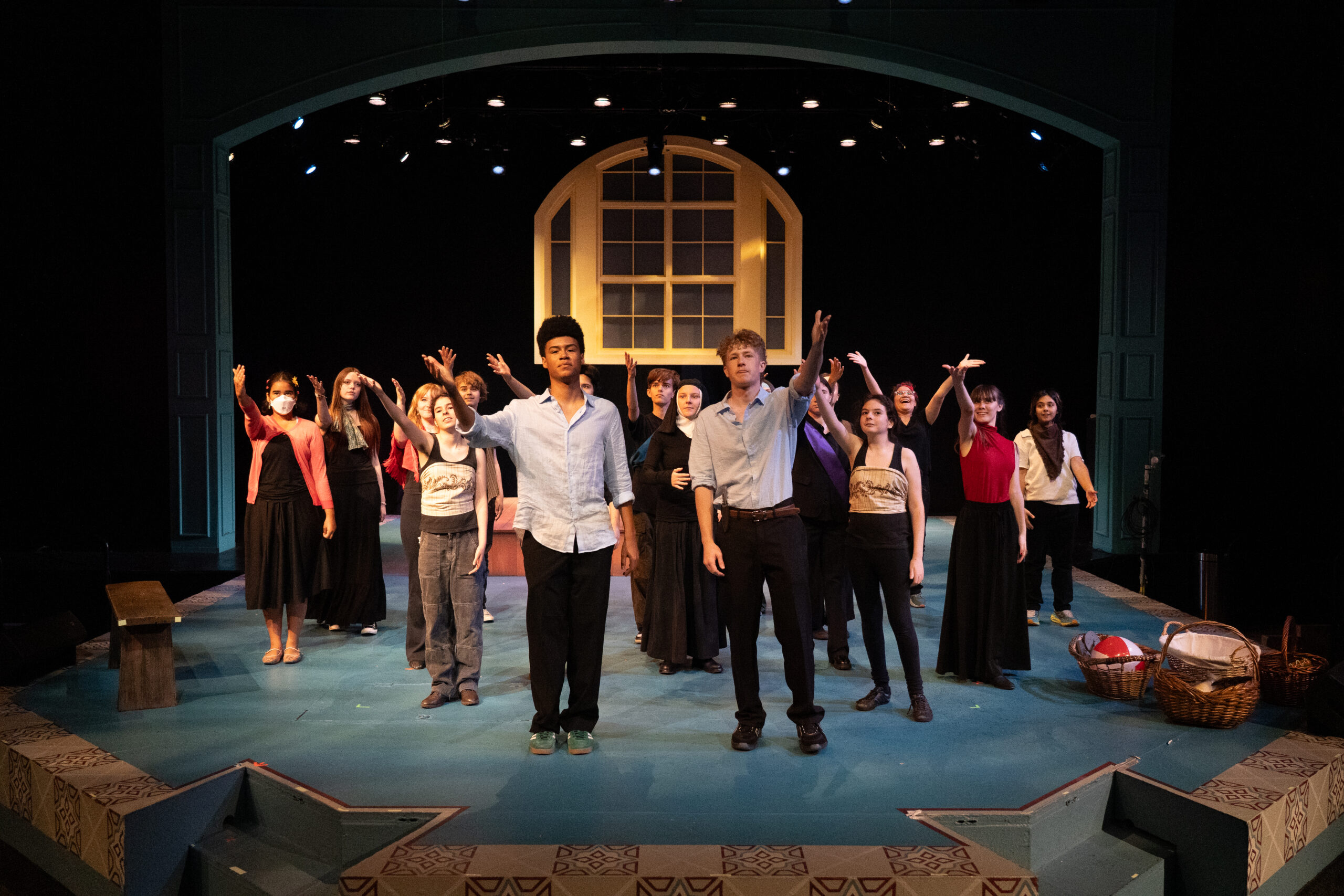“Give Me the Ocular Proof”: Doubt and Racism in Shakespeare’s Othello

By A Noise Within
March 18, 2019
By Dr. Miranda Johnson-Haddad
William Shakespeare’s Othello has long been considered to be one of the playwright’s four greatest tragedies. As is the case with virtually all of Shakespeare’s plays, the plot of Othello was not invented by Shakespeare; its source is a story written by an Italian author named Giraldi Cinthio that was published in Venice in 1565. But Shakespeare, characteristically, changes the focus of the story, rendering it much more complex and nuanced through the power of his own beautiful dramatic language. Of the four major Shakespearean tragedies, Othello is, in many respects, the most richly poetic; and no character employs more beautiful language than Othello himself, the so-called “Moor of Venice.”
Venice was a famously diverse and cosmopolitan city-state, and Shakespeare’s Othello has achieved significant power and influence because of his outstanding abilities as a general. When the play opens, the Venetian state is deeply indebted to Othello for his successful battles against the Turks and their efforts to control Cyprus. Yet in marrying Desdemona, Othello is seen by many influential Venetians as having gone too far. The Duke and the council, mindful of Othello’s military prowess and the fact that Venice needs him, override the opposition to the marriage, but more out of self-interest than out of any sense of fairness. In the end, Othello can never hope to be anything other than an outsider in Venetian society; and once transferred to Cyprus, he easily falls prey to the machinations of Iago.
The central question of the play that both performers and readers must try to answer is whether Iago plants ideas in Othello’s head or merely nurtures ideas that are already there. Certainly Othello is not alone in being deceived by Iago, who is described by many characters as “honest Iago.” But Othello’s extreme susceptibility to Iago’s villainous suggestions reveals at best a profound insecurity about himself, and at worst an internalized racism that Iago seizes upon. Under Iago’s influence, Othello plummets rapidly from utter belief in Desdemona’s love and fidelity to total distrust, based on the scantiest of circumstantial evidence. His downfall is all the more dramatic because it apparently takes place over a matter of mere hours, and scholars sometimes refer to the play as having a “double time frame,” because the action seems to occur almost in parallel universes. Strictly speaking, Desdemona simply hasn’t had enough time to have spent “stolen hours of lust” with Cassio.
Interpretations of the play by various critics over the centuries have usually revealed much more about the critic, and the prejudices of his era, than about the play itself. Many critics have argued incessantly about Othello’s “blackness,” often focusing on what Shakespeare might have meant by the term “Moor” and speculating about the nature of Desdemona’s attraction to Othello, obviously feeling a need to somehow justify it. The play has been read as a cautionary tale against allowing people of color into positions of authority, and against “race-mixing.” In the United States especially, with its shameful history of slavery and Jim Crow, the play has even been used to enforce white supremacist beliefs, including those about who owns Shakespeare or even who is allowed to perform his works.
But if the critical and performance traditions surrounding Othello have often reflected ugly prejudice, the play itself resists easy categorization. Unquestionably it is a play about perceived difference, and about the struggles of an outsider to fit into a society that will never truly accept him. It is also a play about racism, in much the same way that Shakespeare’s The Merchant of Venice (which also explores marginalization in the supposedly tolerant city of Venice) is a play about anti-Semitism. And yet, troublingly, both of these plays also participate in certain racist and anti-Semitic beliefs; and we must resist the temptation to deny this fact simply because we don’t like to think of Shakespeare as contributing to the perpetuation of such prejudices, or because we can’t admit the possibility that he may have shared some of these repugnant ideas himself. Readers who argue for an enlightened Shakespeare are often quick to point out that the most reprehensibly racist lines in Othello are spoken by the least admirable characters in the play; but these readers tend to ignore Desdemona’s highly problematic line, “I saw Othello’s visage in his mind.” The Duke’s remark that “I think this tale would win my daughter too” is often delivered for humorous effect; but such a delivery allows us to avoid acknowledging that the Duke is acting not out of a sense of justice, but out of a desire to wrap up this family quarrel quickly to dispatch Othello back to battle.
If we can approach Othello with a truly open mind, and without feeling obliged to prove that Shakespeare was somehow “woke” enough for the 21st century (an impossibility for a 17th century playwright, no matter how evolved), we will find that the play still speaks to us on a very deep level, largely because the evils of racism continue to plague us today. Othello himself remains one of Shakespeare’s most memorable characters, and his language is soul-stirring. Yet he is also, in many respects, undeniably a stereotype. If his tragic end, which breaks our hearts, comes about in part because of his own flaws, it is also the result, as we can now understand, of the trauma created by his perpetual outsider status. In the 21st century as in the 17th, Shakespeare’s plays invite us to contemplate our own complicity in imposing such outsider status on others, from individuals to entire groups that we choose to label as different. Othello asks uncomfortable questions to which it does not provide easy answers; nor does the play leave us with clear guidelines for how to effect social change. Nevertheless, Shakespeare seems to suggest that seeing each individual as someone with whom we share a common humanity is a promising, and necessary, place to start.
Read Dr. Miranda Johnson-Haddad’s full article in the Othello audience guide.









